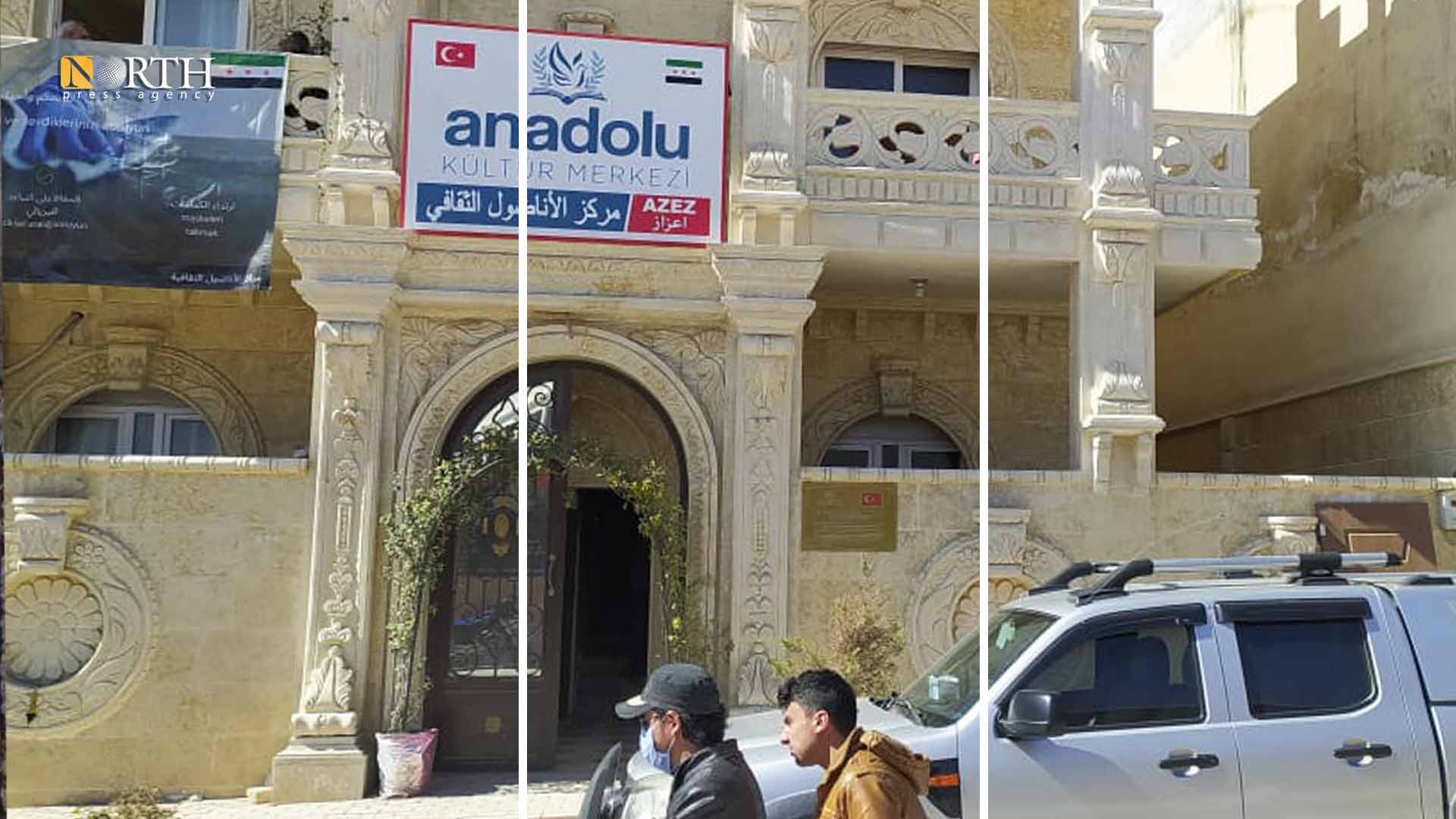AZAZ, Syria (North Press) – Families of students in schools in the city of Azaz, north Syria, are complaining about the difficulties that their children are facing in accepting and learning the Turkish language, which is a compulsory subject, in light of the weakness of the teaching staff and the inability of some families to open special courses for their children.
Since early 2017, the Turkish language has become compulsory in schools in Turkish-occupied northern Syria, with many of the textbooks and teaching materials changed to the Turkish language as part of Turkey’s policy of Turkification and demographic change.
The Turkish language is a main subject that is factored into the overall success rate for all classes.
A foreign language
Muhammad Hammasho, a resident from a town north Azaz, said that his children have been unable to learn the Turkish language due to the poor abilities of the teaching staff, in addition to his inability to teach them at home. “I do not know its basics since it is a foreign language for the Syrian community,” he added.
Activists and observers believe that Turkey is enacting a Turkification policy in the Syrian north through education and other means, in preparation for an expansionist plan or to annex parts of Syria to its territory in a similar manner to how it annexed the Sanjak of Alexandretta (Iskenderun), from Syria in 1936.
Turkey entered northern Syria on the pretext of protecting its security and fighting terrorism, though many Syrian activists say that it invaded Syria to annex Syrian territory.
Hammasho pointed out that his inability to speak Turkish has affected his children’s overall grades, because “it is a main subject in the curriculum.”
In August, the German Merkur website reported that the Turkish forces in Syria have followed cultural influence in Syria, where Turkish language is being taught in schools, a Turkish brand of Islam has been spread, and people must deal in the Turkish lira rather than Syrian currency.
Unqualified staff
Several centers for teaching Turkish language and libraries have been established in Azaz city. The Anadolu Cultural Center in the city is the first center to teach students the Turkish language, in addition to a research center and other private ones for teachers who teach at home.
The minimum wage for each level of learning the Turkish language in the courses that some teachers give in their homes costs 100 Turkish lira (just over $12 USD).
Turkey raises the Turkish flag over a center and official departments and education centers in the areas it occupies in north Syria, and writes the names of these institutions in the Turkish and Arabic languages.
Additionally, it hangs photos of Turkish President Recep Tayyip Erdogan and Turkey’s founder Mustafa Kemal Ataturk in such centers.
Safa’ al-Ahmed, a schoolteacher in Azaz, said, “Teachers of Turkish language are really weak, as they accept individuals who bear only a high school certificate to be teachers.”
However, because they have had courses in Turkish language basics or come in contact with Turkish people during their stay in Turkey, they become teachers of the Turkish language, according to al-Ahmed.
Turkish language teachers often do not have sufficient methods and means in order to convey ideas to students, she told North Press.
Extra costs
Meanwhile, some families that have money are forced to subject their children to courses in private institutes or centers, not to mention the costs of other education supplies in order to teach the child.
Each level of learning the Turkish language in a private institute costs 200 Turkish lira (over $24 USD).
Abdulrazaq al-Mansour (a pseudonym), a resident of Sedjo town, said that he is not the only one to register his children in a private institute for learning the Turkish language.
“Most of the residents of both the northern and eastern countryside of Aleppo are suffering after the imposition of the Turkish language as a main subject in the curriculum, starting from the first classes,” he pointed out.
“Neither we nor the teaching staff who teach the children are familiar with the Turkish language, and we also do not know its basics,” he added.

